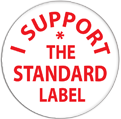Rarely does presentation of statistical data make me say “wow” out loud.
This did. Hans Rosling talking about the state of the world: third world, health, wealth, changes over time. Great data. Great presentation. Worth thinking about.
In addition to the impactful visualization of the worldwide transitions in wealth & health since 1960, Hans also makes extremely clear the dangers of averaging over too large of a data set. I can only begin to highlight how critical that is in understanding the future of the web, search, and Internet services.
Centralized views of the world, such as those underlying Google’s PageRank and the Semantic Web, presume too much about finding the “one true answer”. For Google, it means trying to find the “best” results for a simple keyword query–for some verson of “everyone”. For the semantic web, it means trying to connect all the meta-data and data on the web to provide one true verson of reality that can be reasoned over. And yet, we know that trying to make all of the people happy all of the time is a recipe for failure: it can’t be done. Hans makes this clear in terms of dealing with the ails of the world: poverty and life expectancy. Planning for HIV in the top quartile of Africa needs to be profoundly different than how we deal with it in the bottom quartile.
So beware of average approaches. Beware of universals.
Instead, find the solution that is properly contextualized, preferably customized for each individual.
That’s the direction of VRM (Vendor Relationship Management), by the way. Figure it out for the individual user first, then find ways to use technology to scale efficient solutions. Averages need not be applied. Monolithic approaches to marketing and product development need not apply. Micro-focus at a mega scale.
Tip of the hat to Noah Brier for the Hans Rosling presentation at TED.

